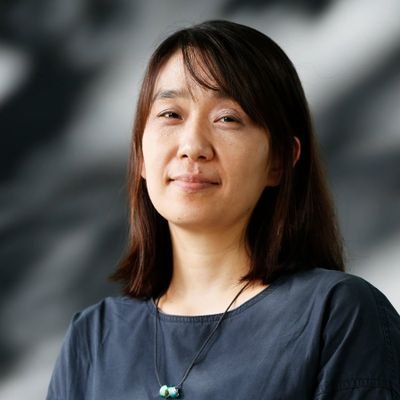Han Kang, the first Asian woman to win the Nobel Prize in Literature
Chosen by the Swedish Academy for her ability to deal with "historical traumas” and “the fragility of human life", the 53-year-old author is the first Korean to win the prestigious award. Alongside "The Vegetarian", her most famous novel, she has also confronted the country’s wounds, like the massacre carried out in 1980 by the military in Gwangju, her birthplace.
Stockholm (AsiaNews) – This year’s Nobel Prize in Literature has been awarded to an Asian female writer for the first time, the Nobel Committee announced today in Stockholm.
The choice fell on Han Kang, a 53-year-old South Korean author whose “oeuvre”, reads the official motivation, “confronts historical traumas and in each of her works exposes the fragility of human life.”
Han Kang's is the first Nobel Prize in literature awarded to a South Korean author and the second Nobel Prize ever for her country after the Nobel Peace Prize in 2000 went to then-President Kim Dae-jung.
The decision by the members of the Stockholm-based academy reflects in some ways the growth of global interest in Korean culture, which has gained immense popularity around the world, from music to TV series, in recent years.
The daughter of a Korean writer, Han Seung-won, Nobel Prize laureate Han Kang was born in Gwangju on 27 November 1970.
Raised in Seoul where she attended Yonsei University, she made her literary debut in 1993 with the publication of a collection of poems and then moved on to prose.
A multifaceted author, she established herself internationally with the translation of her 2007 novel The Vegetarian, which won the International Booker Prize in 2016.
It tells the story of a woman whose decision to stop eating meat turns into a long series of wounds within her family circle with devastating consequences.
It is precisely the intertwining between the materiality of the body and the meanders of the spirit that is one of the traits of her writing.
Another of her major works is Human Acts, a novel written in 2014 dedicated to the Gwangiou massacre of 1980, one of the worst pages in the history of military repression of democratic movements in South Korea.
Han Kang retraces the events trying to give voice to all the victims of history and chooses a particular expedient for the narration, the souls of the dead, who, separated from their bodies, witness to their own annihilation and tell it.
We Do Not Part, released in Korean in 2021 and still undergoing its English translation, looks instead at another wound in Korean history: the massacre on Jeju Island, between 1948 and 1949, of thousands of people for alleged collaboration with communist forces.
“The book portrays the shared mourning process undertaken by the narrator and her friend Inseon, who both, long after the event, bear with them the trauma associated with the disaster that has befallen their relatives,” writes Anders Olsson, chairman of the Nobel Committee.
“With imagery that is as precise as it is condensed, Han Kang not only conveys the power of the past over the present, but also, equally powerfully, traces the friends’ unyielding attempts to bring to light what has fallen into collective oblivion and transform their trauma into a joint art project, which lends the book its title.”
12/02/2016 15:14
18/05/2016 17:24
14/10/2016 19:37
21/06/2006







.png)










